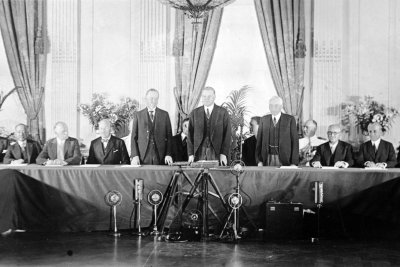Topic: Georg Hegel
Georg Wilhelm Friedrich Hegel (German pronunciation: ) (August 27, 1770 – November 14, 1831) was a German philosopher, one of the creators of German Idealism. His historicist and idealist account of reality as a whole revolutionized European philosophy and was an important precursor to Continental philosophy and Marxism.
Hegel developed a comprehensive philosophical framework, or "system", of Absolute idealism to account in an integrated and developmental way for the relation of mind and nature, the subject and object of knowledge, and psychology, the state, history, art, religion and philosophy. In particular, he developed the concept that mind or spirit manifested itself in a set of contradictions and oppositions that it ultimately integrated and united, without eliminating either pole or reducing one to the other. Examples of such contradictions include those between nature and freedom, and between immanence and transcendence.
Hegel influenced writers of widely varying positions, including both his admirers (Strauss, Bauer, Feuerbach, T. H. Green, Marx, F. H. Bradley, Dewey, Sartre, Küng, Kojève, Fukuyama, Žižek, Brandom, Iqbal) and his detractors (Schopenhauer, Schelling, Kierkegaard, Nietzsche, Stirner, Peirce, Popper, Russell, Heidegger). His influential conceptions are of speculative logic or "dialectic", "absolute idealism", "Spirit", negativity, sublation (Aufhebung in German), the "Master/Slave" dialectic, "ethical life" and the importance of history.
It uses material from the Wikipedia article "Georg Hegel."





